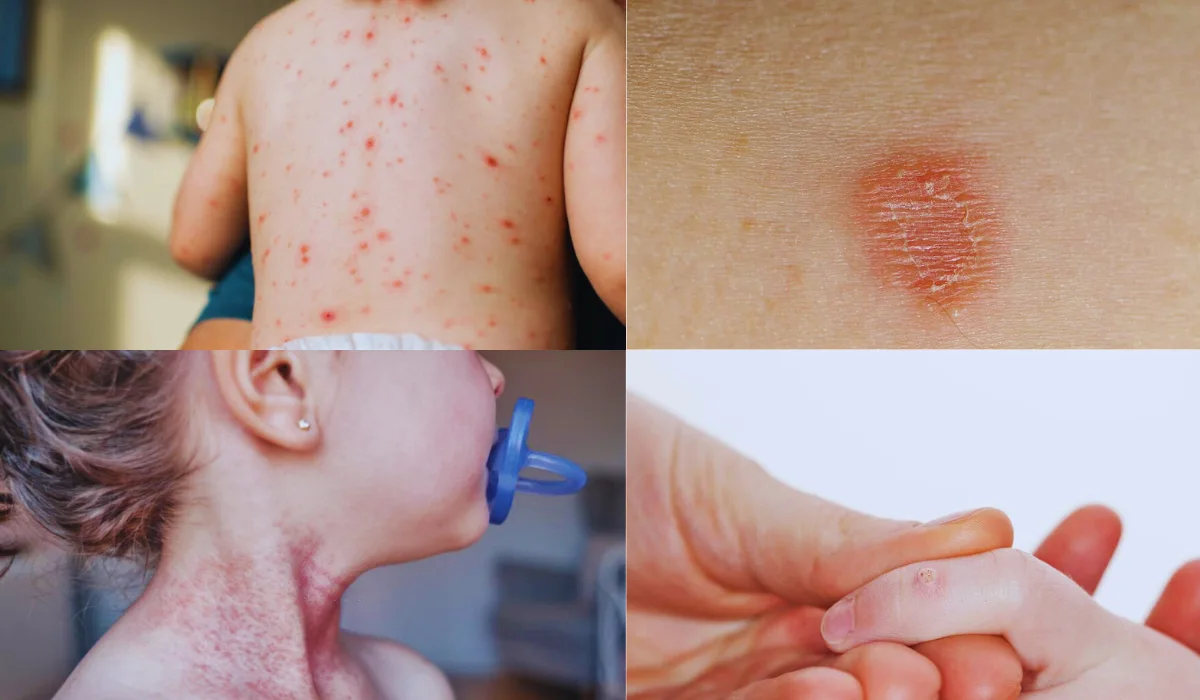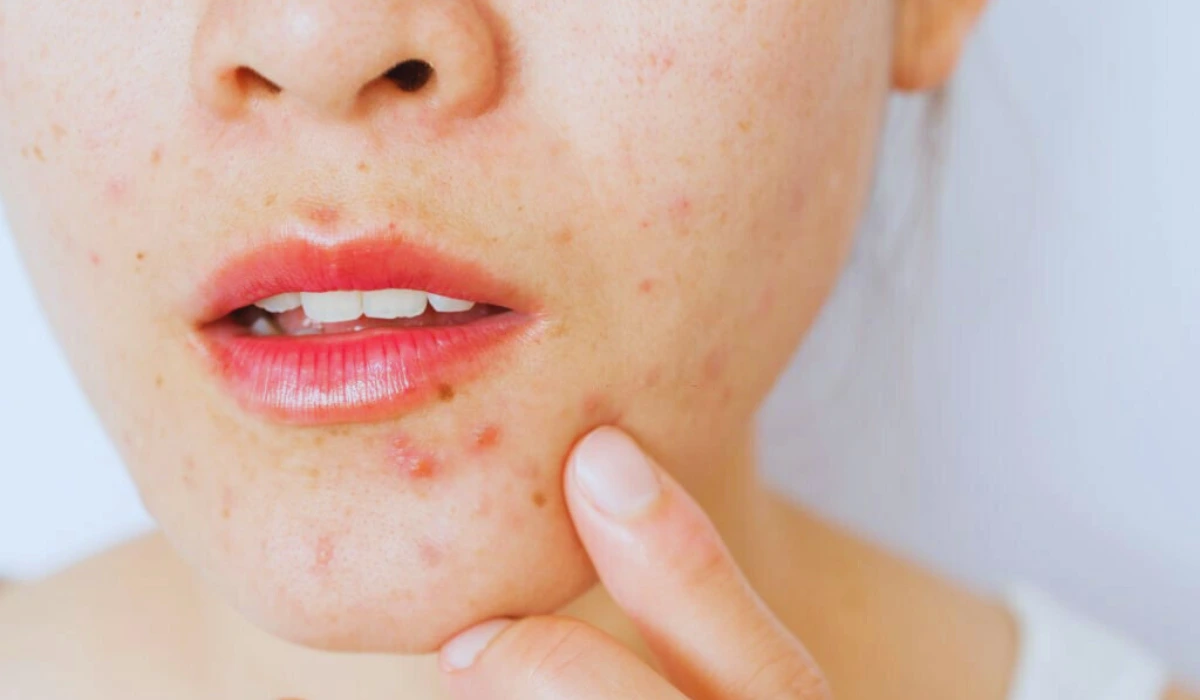Skin conditions affect our confidence and could be a cause of distress. However, in some cases, the effect might not be just mental but also physical. Skin infections can be caused by various external factors which are considered serious.
It could span from a simple boil on the skin to an acute acne outbreak on your face or body. With a rise in the amount of pollutants around you, you might want to give this article a read to know what are the major types of infections, their causes, and treatment. This could be helpful for you or your loved ones.
Types Of Skin Infections
Different types of skin infections are often classified according to the causal factor. Major types include,
1. Impetigo: This condition is often characterized by red sores that cover the body. It could also break and then form a thin brown crust over them.
2. Chicken Pox: It is a fairly common skin disease that covers the body with sores including throat and face. These sores, to make it worse are itchy.
3. Candiasis: Also causes red itchy boils. However, different from its counterpart, candidiasis is often spotted on the mouth or groin as it needs a humid environment to grow.
4. Scabies: Unlike the others on the list, scabies cause a lot of distress by occupying places that are often hard to reach. These include small crevices and skin folds that are a stranger to sunlight or any warm source.
5. Ringworm: These infections can be differentiated by their circular structure also itchy.
6. Boils: What makes it different is the pus-filled structures that cover the body.
7. Eczema: One of the most common kinds of skin infections, eczema can be found on any part of the body.
8. Lice: Another skin infection characterized by pest infestation is lice which can cause severe itching on the scalp.
9. Herpes: Herpes causes sores near the mouth or the genital area as it causes unprotected sex.
10. Cellulitis: A painful condition, it is often characterized by sores that could often pierce the epidermis. Like others, it often swells and is itchy.
11. Warts: Contagious sores similar to the ones that are red and often have liquid flowing from the pores.

Causes Of Skin Infections
Skin infections can be caused due to the following,
1. Microorganisms: A prominent cause of skin infections this could include bacteria, viruses, or fungi that are not visible to the bare eye. For instance, Impetigo is caused by bacteria while chicken pox is the work of a virus.
2. Breaks in the skin: Some of these skin infections can be caused by tears in the skin layers which could be from a knife or other types of equipment. This is how cellulitis often enters the skin.
3. Compromised immune system: Some individuals often have a compromised immune system due to various other ailments like cancer.
To treat this disease, they have to take immunosuppressants and that is when the bacteria can enter the body. For instance, individuals with HIV might have compromised immune systems which could leave the person open to various skin diseases.
4. Poor hygiene: The skin is the largest organ in the body and therefore comes into contact with external factors very often. Not cleaning it properly can lead to the accumulation of dirt and other microorganisms on the body. Folliculitis spreads this way.
5. Close contact with infected individuals: Most skin diseases are communicable and can be transmitted by coming into contact with the patient or using their belongings like ringworm.
6. Warm and moist environments: Some of the body parts are in constant contact with fluids and are covered mostly by clothes. This can create an ideal situation for the bacteria to procreate.
7. Underlying skin conditions: Some individuals are known to be attacked by many skin conditions as diseases like eczema or psoriasis make their epidermis weak making it easier for the bacteria to penetrate.
8. Environmental factors: Exposure to external factors like sunlight, irritants, dirt or pollutants could all make your life difficult. Workers who come in contact with dirty water could lead to sores on the skin.
9. Allergic reactions: Some individuals also develop certain skin reactions as a result of eating or touching substances like bee pollen or nuts. An example would be dermatitis.
10. Genetic predisposition: According to researchers, certain people are more prone to developing allergies than others. Diseases like psoriasis are caused due to this.
Treatment For Skin Infections
Treatment for skin infections could mostly depend on the type and intensity of the wounds, pores, or sores. However, there are some general medicines prescribed for the condition including,
1. Antibiotics, Antifungals, and antivirals: Any of these are always prescribed as the first course of action depending on the condition.
2. Topical treatments: To reduce the redness or itching, creams are helpful. You should however consult the doctor before applying any.
3. Wound care: Anytime there is a deep cut or wound, it is wise to cover it with cloth and do proper dressing until it heals fully.
4. Pain management: Over-the-counter medications are prescribed in cases where the sores can cause incessant pain.
5. Warm compress: Some reactions caused due to allergic are known to subside when they come into contact with a warm compress. You shouldn’t treat open wounds with a warm compress in any case.
6. Avoiding irritants: If you are allergic to certain materials, stay away from them and keep yourself clean.
Conclusion
Skin infections are widely popular and there are many kinds of them. The causes of most of these conditions are unhealthy weather conditions, irritants, and dust.
Apart from these, a weak immune or genetic system could also be the reason for sudden skin irritation.
Medicines are often prescribed by doctors to deal with these conditions. Creams to decrease the itching and alleviate the pain are also available.
Moreover, there are certain habits one must take care of to avoid unnecessary ailments regarding the skin.
Using clean hand towels, keeping yourself sweat-free, and taking regular baths could all be ways to be hygienic.

